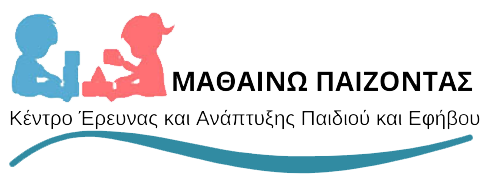Άρης (Βλαστάρης) Τσακίρης
Σημαντική ανακοίνωση επαναλειτουργίας του κέντρου "Μαθαίνω παίζοντας"
Αγαπητοί μας γονείς,
Θα θέλαμε να σας ενημερώσουμε ότι το Κέντρο μας έχει ξεκινήσει και πάλι την λειτουργία του.
Πρέπει όλοι μας να είμαστε πολύ προσεκτικοί για να αποφύγουμε τυχόν διάδοση του ιού COVID-19.Όσον αφορά το Κέντρο μας, θα ακολουθήσουμε τα παρακάτω:
- Οι συνεδρίες είναι εξατομικευμένες με την παρουσία μόνο του παιδιού και του θεραπευτή στην αίθουσα.
- Κατά τη διάρκεια της συνεδρίας γίνεται χρήση μάσκας και γαντιών μιας χρήσης. Οι αίθουσες αερίζονται και μετά το πέρας κάθε θεραπείας γίνεται απολύμανση των επιφανειών και των καθισμάτων.
- Είναι πολύ σημαντικό να μην υπάρχουν καθυστερήσεις, έτσι ώστε να μην συγχρωτίζονται στον χώρο πολλά άτομα αλλά και για να προλαβαίνουν οι θεραπευτές να κάνουν τις παραπάνω διεργασίες.
- Στην είσοδο υπάρχει για άμεση χρήση αντισηπτικό αλκοολούχο διάλυμα. Συνίσταται καλό τρίψιμο των χεριών μέχρι να στεγνώσει το αντισηπτικό.
- Με την είσοδο στο χώρο του Κέντρου μας , παρακαλούμε να πλένετε άμεσα και πολύ σχολαστικά τα χέρια στα παιδιά σας.
- Αποφεύγουμε τις άσκοπες μετακινήσεις μέσα στο χώρο.
- Σε περίπτωση που το παιδί δεν νιώθει καλά, ενημερώνουμε έγκαιρα τον θεραπευτή και ζητάμε την ακύρωση του ραντεβού.
Είμαστε στη διάθεση σας να συζητήσουμε οποιοδήποτε προβληματισμό σχετικά με τα παραπάνω μέτρα και να θέσουμε και επιπλέον μέτρα αν νιώσουμε ότι χρειάζεται.
Είμαστε μαζί σε όλο αυτό και θα βγούμε όλοι μαζί πιο δυνατοί.
Με εκτίμηση,
Μαθαίνω Παίζοντας
Τι μας διαφοροποιεί;
Είναι λογικό οι γονείς και οι κηδεμόνες παιδιών και εφήβων με διάφορες αναπτυξιακές και άλλες δυσκολίες να μην έχουν πάντα τις απαραίτητες πληροφορίες για να κρίνουν ποιος χώρος είναι ο πλέον κατάλληλος για να καλύψει τις ανάγκες τους. Εμείς, λοιπόν, θα σας παρουσιάσουμε εν συντομία τα στοιχεία που μας διαφοροποιούν:
- Ειδικευόμαστε στις αξιολογήσεις και στις διαγνώσεις παιδιών που γίνονται με έγκυρα και σταθμισμένα διαγνωστικά εργαλεία. Δεν είναι τυχαίο ότι η δρ Ευφροσύνη Καλύβα είναι επιστημονική συνεργάτης της Α’ Παιδιατρικής Κλινικής του Ιπποκράτειου Νοσοκομείου Θεσσαλονίκης και έχει τεράστια κλινική εμπειρία. Τα αποτελέσματα αυτών των διαγνώσεων χρησιμοποιούνται και για τον σχεδιασμό εξατομικευμένων θεραπευτικών προγραμμάτων αλλά και για την παρακολούθηση της εξέλιξης του παιδιού.
- Παράγουμε και δεν αναπαράγουμε απλώς γνώση. Αν διαθέσετε τον χρόνο να ρίξετε μια ματιά στην κατηγορία δημοσιεύσεις στην ιστοσελίδα μας, θα δείτε ότι έχουμε γράψει βιβλία στα Ελληνικά και στα Αγγλικά, κεφάλαια σε βιβλία και άρθρα σε ξενόγλωσσα επιστημονικά περιοδικά με κριτές. Ένα κομμάτι αυτής της δουλειάς έχει γίνει σε συνεργασία με έγκριτους πανεπιστημιακούς τόσο στην Ελλάδα όσο και στο Εξωτερικό. Το βιβλίο της δρ Ευφροσύνης Καλύβα για τις εκπαιδευτικές και θεραπευτικές προσεγγίσεις στον αυτισμό που κυκλοφορεί και στα Αγγλικά από το 2011 αναγορεύτηκε πρόσφατα από την Αμερικάνικη Ένωση Βιβλιοθηκών ως ένα από τα 12 βιβλία της τελευταίας 10ετίας για τον αυτισμό που θα πρέπει κάποιος να διαβάσει. Πολλά αποσπάσματα από το συγκεκριμένο βιβλίο φιλοξενούνται αυτούσια και σε σχετικές ιστοσελίδες (www.autismgreece.gr). Έχουμε συμμετάσχει επίσης σε περισσότερα από 100 Ελληνικά και διεθνή επιστημονικά συνέδρια με προφορικές εισηγήσεις (συχνά ως προσκεκλημένοι ομιλητές).
- Επιμορφώνουμε γονείς, εκπαιδευτικούς και άλλους επαγγελματίες ψυχικής υγείας. Εδώ και 15 χρόνια συμβάλλουμε στην επιμόρφωση με ημερίδες, εργαστήρια, ομιλίες, εκπαιδευτικά προγράμματα και ποικίλες άλλες δράσεις τόσο στην Θεσσαλονίκη όσο και σε άλλες πόλεις της Βόρειας Ελλάδας. Η δρ Ευφροσύνη Καλύβα ήταν Αναπληρώτρια Καθηγήτρια ψυχολογίας σε προπτυχιακό και μεταπτυχιακό επίπεδο από το 2000 έως και το 2017 στο Διεθνές Τμήμα του Πανεπιστημίου του Sheffield, CITYCOLLEGE. Δίδαξε στο Διδασκαλείο Γληνός δασκάλους ειδικής αγωγής από το 2002 έως και το 2012 που έκλεισε πλέον το τμήμα και υπήρξε λέκτορας με καθεστώς ΠΔ/407 στο τμήμα Εκπαιδευτικής και Κοινωνικής Πολιτικής του Πανεπιστημίου Μακεδονίας όπου δίδαξε και σε προγράμματα εξειδίκευσης 300 ωρών.
- Σταθμίζουμε εργαλεία πρώιμης ανίχνευσης αναπτυξιακών διαταραχών στην Ελλάδα. Ο καθηγητής Matson από το Πανεπιστήμιο της Λουιζιάνα μας επέλεξε για να σταθμίσουμε στα Ελληνικά το BISCUIT και το πανεπιστήμιο του Γκέτενμπουργκ στην Σουδία για να σταθμίσουμε το ATAC. Αυτό είναι πολύ τιμητικό για εμάς εφόσον έχουν επιλεχθεί ελάχιστοι επιστήμονες σε παγκόσμιο επίπεδο και αποτελεί μια σημαντική διάκριση με την οποία θα βοηθήσουμε έμπρακτα τα παιδιά με αναπτυξιακές δυσκολίες και τις οικογένειές τους.
- Έχουμε λάβει επιδοτήσεις από την Ευρωπαϊκή Ένωση για να διεξάγουμε έρευνα σχετικά με τα δικαιώματα των παιδιών. Κάποια από τα προγράμματα αυτά έχουν ολοκληρωθεί ενώ άλλα είναι σε εξέλιξη και έχουμε συν-γράψει και έναν οδηγό στα Ελληνικά για το πως μπορούμε να προσεγγίσουμε παιδιά και νέους που έχουν βιώσει βία και παραμέληση.
- Επιδεικνύουμε ευθύνη προς την κοινωνία προσφέροντας τις υπηρεσίες μας δωρεάν σε συλλόγους που ασχολούνται με το παιδί καθώς και σε ορισμένους γονείς που δεν έχουν την οικονομική δυνατότητα να παρέχουν τις απαραίτητες υπηρεσίες στα παιδιά τους.
Όλα τα παραπάνω αποτελούν μια έξωθεν μαρτυρία για την ποιότητα των υπηρεσιών που παρέχουμε και έχουν τύχει ευρείας αναγνώρισης και από την διεθνή επιστημονική κοινότητα. Είναι επίσης αυτό που μας κάνει διαφορετικούς.
Προβλήματα συμπεριφοράς
Προβλήματα Συμπεριφοράς
Πολλά παιδιά προσχολικής και σχολικής ηλικίας εκδηλώνουν προβλήματα ανεπιθύμητης ή ανάρμοστης συμπεριφοράς, τα οποία ορισμένες φορές μπορεί να οφείλονται στην έλλειψη ορίων από το περιβάλλον και στην προσπάθεια του παιδιού να τραβήξει την προσοχή. Οι γονείς πρέπει να αρχίσουν να ανησυχούν όταν η κατάσταση του παιδιού τους ξεφεύγει από τα όρια σε τέτοιο βαθμό, ώστε να εμποδίζει την ομαλή λειτουργία της οικογένειας και να οδηγεί το παιδί σε προβληματικές διαπροσωπικές σχέσεις. Το ποσοστό των παιδιών που παρουσιάζουν ήπια ή πιο σοβαρά προβλήματα συμπεριφοράς ανέρχεται στο 7-9% του μαθητικού πληθυσμού και η διάγνωση γίνεται κυρίως με κλίμακες που καλούνται να συμπληρώσουν οι γονείς και οι εκπαιδευτικοί. Και εδώ χρειάζεται ιδιαίτερη προσοχή για την ποιοτική αξιολόγηση των συμπεριφορών, ώστε να δοθεί μία σωστή διάγνωση προβλημάτων συμπεριφοράς.
Τα συμπτώματα που εκδηλώνουν τα παιδιά με προβλήματα συμπεριφοράς είναι τα ακόλουθα:
1) Τα παιδιά αρνούνται να συμμορφωθούν με κανόνες και να υπακούσουν είτε τους γονείς τους είτε άλλους ενήλικες.
2) Τα παιδιά έχουν μία έντονη αρνητική διάθεση για να συνυπάρξουν και να συνεργαστούν με άλλους ανθρώπους, με αποτέλεσμα να δημιουργούνται συχνά έντονοι καβγάδες.
3) Τα παιδιά με προβλήματα συμπεριφοράς προκαλούν συχνά και είναι ιδιαίτερα αντιδραστικά, ενώ συνηθίζουν να λένε ψέματα για να αποφύγουν την τιμωρία.
4) Εκδηλώνουν έντονη επιθετικότητα σε ανθρώπους και ζώα και προβαίνουν συχνά σε φθορά ή καταστροφή ξένης περιουσίας.
5) Εμπλέκονται συχνά σε απάτες ή κλοπές αντικειμένων, η αξία των οποίων αυξάνει ανάλογα με την ηλικία τους, με αποτέλεσμα να έχουν προβλήματα με τον νόμο.
Πρέπει να σημειωθεί ότι ο βαθμός στον οποίο εκδηλώνονται οι προαναφερθείσες συμπεριφορές διαφέρουν από παιδί σε παιδί (και ενίοτε από πλαίσιο σε πλαίσιο) και για τον λόγο αυτό είναι απαραίτητο να γίνεται σωστή αξιολόγηση και διάγνωση με τα κατάλληλα εργαλεία και την ενεργό συμμετοχή των γονέων του παιδιού.
Παρουσιάσεις σε επιστημονικά συνέδρια
Παρουσιάσεις σε επιστημονικά συνέδρια (με χρονολογική σειρά)

Προσεκλημένοι ομιλητές
▪ Kalyva, E. (1999). Psychosocial Influences on Adolescent Smoking: Proposals for Intervention Programmes. Invited Speaker. Paper presented at the Conference organised by the Greek Pedagogical Institute. The proceedings of the conference will be published and distributed to all the Greek secondary schools.
▪ Kalyva, E. (2001). The importance of play in autism. Invited Speaker at RNIB Annual Conference.
▪ Kalyva, E. (2002). Helping children with autism and their families through play. Invited Speaker at the Annual Portage Conference in Northampton.
▪ Kalyva, E. (2003). Adolescents and smoking: Knowledge and misconceptions. Paper presented at an invited symposium on ‘Adolescents; and teachers’ perceptions of mental health illness, addiction, and difference’ during the 1st Conference of the Psychological Society of Northern Greece in Volos, Greece.
▪ Kalyva, E. (2005). Educating children with autism. Invited Speaker at a Day Conference on “Special Needs Education in Primary Education: Educational Reality and Future Perspectives”, University of Macedenia.
▪ Kalyva, E. (2006). Research methods in special needs education. Invited Speaker at a Day Conference on “Directions of Special Needs Education in Greece” at Aristotle University, Thessaloniki, Greece.
▪ Κalyva, E. (2006). Behavioural problems in children with learning disabilities. Invited Speaker at the Panhellenic Conference entitled: “Learning disabilities: Right to life, right to knowledge” in Thessaloniki, Greece.
▪ Κalyva, E. (2007). Symptoms of learning disabilities in the preschool years.. Invited Speaker at a Seminar organised by the Nursery School “Kokkinoskoufitsa” in Panorama of Thessaloniki, Greece.
▪ Κalyva, E. (2007). Educating adults with special educational needs. Invited Speaker at a Seminar organised by the Municipality of Ampelokipi in Thessaloniki, Greece.
▪ Kalyva, E. (2008). The Circle of Friends: Training children with behavioural problems in social skills. Invited Speaker at the Conference on “Contemporary Approaches to Special Needs and Education” organised by the National Association of Special Needs Educators in Thessaloniki, Greece.
▪ Κalyva, E. (2008). Early identification of special educational needs.. Invited Speaker at a Seminar organised by the Nursery School “Kokkinoskoufitsa” in Panorama of Thessaloniki, Greece.
▪ Kalyva, E. (2008). The Circle of Friends: Training children with behavioural problems in social skills. Invited Speaker at the Conference on “Contemporary Approaches to Special Needs and Education” organised by the National Association of Special Needs Educators in Thessaloniki, Greece.
▪ Kalyva, E. (2008). Educating children with learning disabitlities in the classroom. Invited Speaker at the Conference on “Training children with special needs” organised by the Educational Municipality of Kavala, Greece.
▪ Kalyva, E. (2008). The Circle of Friends: Training children with behavioural problems in social skills. Invited Speaker at the Conference on “Contemporary Approaches to Special Needs and Education” organised by the National Association of Special Needs Educators in Thessaloniki, Greece.
▪ Kalyva, E. (2008). Educating and teaching children with autism. Invited Speaker at the 1st Conference of the Association of Parents of Children with Autism in Serres, Greece.
▪ Vivas, A.B., Angeles, F., & Kalyva, F. (2008). Training with differential Outcomes is effective in children with developmental dyslexia. Invited oral presentation in a symposium at the XXIX International Congress of Psychology, 20-25 July, Berlin, Germany.
▪ Kalyva, E. (2008). Autism: Early signs and how to diagnose it. Invited Speaker at the 1st International Conference entitled: “Autism in Albania: Pubic awareness and public responsibility” in Tirana, Albania.
▪ Kalyva, E. (2008). Comparison of eating attitudes between adolescent girls with and without Asperger's Syndrome: Daughters’ and mothers’ reports. Invited Speaker at the Autism 2008 Online AWARES Conference on Autism organised by the Wales International Autism Association, UK.
▪ Kalyva, E. (2008). The social includion of a child with Asperger syndrome. Invited Speaker at a Seminar organised by the Municipality of Thessaloniki and the Administration of Public Libraries of Thessaloniki, Greece.
▪ Kalyva, E. (2008). Autism and Asperger syndrome: Educational and therapeutic approaches. Invited Speaker at a Seminar organised by the Municipality of Thessaloniki and the Administration of Public Libraries of Thessaloniki, Greece.
▪ Κalyva, E. (2009). Setting limits and boundaries in the adult-child relationship.. Invited Speaker at a Seminar organised by the Nursery School “Kokkinoskoufitsa” in Panorama of Thessaloniki, Greece.
▪ Kalyva, E. (2009). Patient with Alzheimer and caregiver of an adult with Asperger Syndrome: A case study. Invited Speaker at the 6th Panhellenic Conference of Alzheimer and Related Disorders in Thessaloniki, Greece.
▪ Kalyva, E. (2009). Educational approaches for autism and behavior problems.. Invited Speaker at an Educational Seminar organized by the Local Educational Authority of Larisa, Greece.
▪ Kalyva, E. (2009). Teachers' Perspectives of the Sexuality of Children with Autism Spectrum Disorders. Invited speaker at the Online Awares Conference.
▪ Kalyva, E. (2010). The Relationship Between Parents of Children with Autism Spectrum Disorders and Mental Health Professionals. Invited speaker at the Online Awares Conference.
▪ Kalyva, E., & Papageorgiou, V. (2011). What do Parents of Children with Autism Spectrum Disorders Expect from Support Groups?.Invited speaker at the Online Awares Conference.
▪ Kalyva, E. (2012). What do Greek teachers know about learning disabilities, autism and attention-deficit hyperactivity disorder?.Invited speaker at the Online Awares Conference.
▪ Kalyva, E. (2012). Learning disabilities and their treatment.Invited speaker at the workshop entitled «School stress and time management» organised by the Municipality of Thessaloniki.
▪ Kalyva, E. (2013). Eating disordered attitudes among adolescent girls with Asperger Syndrome. Invited speaker at the Second International Conference on Feeding Disorders, Middlands, UK.
▪ Kalyva, E. (2014). Promoting the participation of young people in the decision making. Invited speaker at AIESEC's Youth Today Conference, Thessaloniki, Greece.
▪ Kalyva, E. (2014). Assessment of individuals with developmental disabilities. Invited speaker at MSc in Neuroscience at the Aristotle University of Thessaloniki, Greece.
▪Kalyva, E. (2014). Developmental diagnostic tools in childhood. Invited speaker at 14th Annual National Child Neurology Conference, Thessaloniki, Greece.
▪ Kalyva, E. (2014). Bullying in and out of the school premise. Invited Talk at the 85th Public Elementary School of Thessaloniki, Greece.
▪ Kalyva, E. (2014). Engaging vulnerable young people in research. Invited seminar at Anglia Ruskin University, Cambridge, UK.
▪ Kalyva, E. (2015). How can our child succeed in life and in school? Invited speaker at XANTH, Thessaloniki, Greece.
▪ Kalyva, E. (2015). How to deal with behavioral problems?Invited speaker atSeminar Series “Psychology for All”, The University of Sheffield International Faculty, City College, Thessaloniki, Greece.
▪Kalyva, E., & Tsakiris, V. (2015). "We say no to violence". Workshop organisation and delivery at the 1st Thessaloniki Science Festival (Thessaloniki, 16 & 17/5/2015)
▪ Kalyva, E., & Tsakiris, V. (2015). Working with learning disabilities. Seminar series at “Learning through play”, Thessaloniki, Greece.
▪ Kalyva, E., & Tsakiris, V. (2015). Parenting children with developmental disabilities. Seminar series at “Learning through play”, Thessaloniki, Greece.
Ομιλητές μετά από κρίση της εργασίας
▪ Kalyva, E. (1996). Depression and Bereavement in Elderly People. Paper presented at the Conference of the Greek Psychological Association in Patras. It was part of a presentation on “Depression in Elderly People”.
▪ Gena, A. & Kalyva, E. (1999). Criteria for the integration of Autistic Children into Kindergarten and the First Class of Primary School. Paper presented at the Conference of the Association of Greek Psychologists in Cyprus.
▪ Kalyva, E. (1999). Psychosocial Influences on Adolescent Smoking. Poster presented at the Institute of Education, University of London.
▪ Kalyva, E. (2000). Is there hope in autism? A case study. Poster presented at the ABA Annual Convention in Washington DC.
▪ Kalyva, E. (2000). The importance of play in autism. Paper presented at the Play for all….2000 Conference in Birmingham.
▪ Kalyva, E.(2000). Psychosocial predictors of adolescent smoking. Poster presented at the BPS Developmental Section Annual Conference.
▪ Kalyva, E. (2000). Psychosocial factors that influence adolescent smoking. Paper presented at a Conference on Developmental and Educational Psychology at the University of Athens.
▪ Kalyva, E. (2001). The misconceptions that young people foster about smoking: are there gender differences? Poster presented at BPS Annual Centenary Conference in Glasgow.
▪ Kalyva, E. (2001). The importance of incorporating play into ABA techniques. Paper presentation at ABA Annual Convention in New Orleans.
▪ Kalyva, E. (2001). The importance of incorporating play in the treatment of autism. 8th Panhellenic Conference of Psychological Research in Alexandroupoli.
▪ Christidis, D.A., Zafeiri, K., Kalyva, E.,Mitsopoulou, C., Roikou, K., & Fotakopoulou, O. (2001). Training of A.P.T. students to use stress management techniques. Awarded poster presented at the 1st Panhellenic Conference of the Greek Association of Psychophysiology.
▪ Kalyva, E. (2001). The importance of incorporating play into ABA treatments of autistic children. Paper presented at the First International ABA Conference in Venice, Italy.
▪ Kalyva, E. (2002). Autistic children and their parents: Facilitating their interaction through play. Paper presented at the Annual BPS Conference in Blackpool.
▪ Kalyva, E. (2002). Peer "pressure" or peer "influence" in adolescent smoking? Poster presented at the 2002 SRA Biennial Meeting.
▪ Kalyva, E. (2002). Adolescent smoking and health education in Greek schools.Paper presented at the ATINER conference in Athens.
▪ Kalyva, E. (2002). The contribution of image to the treatment of autism. Paper presented at the Conference on Icon and Child in Thessaloniki.
▪ Kalyva, E. (2002). Improving the communication of children with autism and their peers using the “circle of friends”. Paper presented at 2nd Panhellenic Conference of Greek School Psychologists in Thessaloniki.
▪ Kalyva, E. (2003). Improving communications of children with autism and their peers at school through ‘circle of friends’ Poster presented at the BPS Annual Conference in Bournemouth.
▪ Kalyva, E., & Dimopoulou, S. (2003). Social Play in Kindergarten. Poster presented at the biannual conference of the Greek Psychological Society in Rhodes.
▪ Kalyva, E. (2003). Facilitating peer interaction of children with autism. Paper presented at the International APA Conference in Austria.
▪ Kalyva, E., & Gojkovic, D. (2003). The influence of smoking policy on adolescent smoking in Greece. Poster presented at the Xith European Conference on Developmental Psychology in Milan.
▪ Kalyva, E. (2003). The role of a mother of a child with autism. Paper presentd at the 1st Hellenic Conference on Counselling Psychology in Athens.
▪ Kalyva, E. (2004). The influence of school smoking policy on adolescent smoking in Greece. Poster presented at the IX Conference of the European Association for Research on Adolescence in Porto, Portugal.
▪ Kalyva, E., & Kasampali. A. (2004). What is the relationship between locus of control and the outcome of attempts to quit smoking?. Poster presented at the IX Conference of the European Association for Research on Adolescence in Porto, Portugal.
▪ Avramidis, E., & Kalyva, E. (2004). Greek teachers’ attitudes towards the inclusion of children with special educational needs in the mainstream school. Paper presented at the ECER Conference in Crete.
▪ Printzi, A., & Kalyva, E. (2004). The influence of the importance of the topic on the size of children’s drawings. Paper presented at the ECER Conference in Crete.
▪ Kalyva, E., & Georgiadi, M. (2004). The attitudes of mothers of typically developing children towards the inclusion of children with special needs. Paper presented at the conference “The European Dimension of Special Needs” in Thessaloniki.
▪ Avramidis, E., & Kalyva, E. (2004). The influence of teaching experience and training on Greek teachers’ attitudes towards inclusion. Paper presented at the conference “The European Dimension of Special Needs” in Thessaloniki.
▪ Papageorgiou, V., Kalyva, E., & Dafoulis, V. (2004). Hyperactivity and commorbidity in children aged between 6-9 years pld in Greece. Poster presented at the conference “The European Dimension of Special Needs” in Thessaloniki.
▪ Agaliotis, I., Kalyva, E., & Vagena, E. (2004). The use of non-verbal communication by children with SLI for the creation of social interaction: A preliminary study.Paper presented at the 5th Panhellenic Conference “Learning and teaching in an evolving society” in Athens.
▪ Kalyva, E., Dimopoulou, S., & Philippou, O. (2004). The nature of solitary play in kindergarten children without siblings. Paper presented at the 1st International Conference “Quality of life and psychology” in Thessaloniki.
▪ Kalyva, E., & Papageorgiou, V. (2004). Greek psychology students’ knowledge about autism. Paper presented at the 1st International Conference “Quality of life and psychology” in Thessaloniki.
▪ Vucevic, A., Kalyva, E., & Brooker, C. G. (2005). How do parents discuss with their children about drug use in post-war Serbia and Montenegro? Poster presented at the BPS Quientennial Conference in Manchester.
▪ Kalyva, E., & Papageorgiou, V. (2005). Improving the communication of children with autism and their peers through the ‘circle of friends’. Paper presented at the 10th Conference “Autism and communication disorders” in Thessaloniki.
▪ Kalyva, E., & Agaliotis, I. (2005). The influence of test anxiety on children with reading difficulties. Paper presented at the 27th ISPA Colloquium in Athens.
▪ Kalyva, E., & Agaliotis, I. (2005). Attitudes of typically developing children towards the inclusion of a child with motor disablitiy. Paper presented at the 11th Conference of Greek Psychological Society in Ioannina.
▪ Kalyva, E., & Dimopoulou, S. (2006). Stress experienced by parents of children with autism spectrum disorders. Paper presented at the 27th International Conference Stress and Anxiety Research Society in Crete.
▪ Karagiannidou, M., & Kalyva, E. (2006). Stress and locus of control of parents of children with nocturnal enuresis. Paper presented at the 27th International Conference Stress and Anxiety Research Society in Crete.
▪ Papageorgiou, V., Kalyva, E., & Vogindroukas, I.(2006). Health professionals’ training on autism spectrum disorders.Paper presented at the 26th International Congress of Applied Psychology in Athens.
▪ Kalyva, E., Gena, A., & Tsakiris, V. (2006). Reframing the relationship between professionals and parents of children with autism using a partnership protocol. Paper presented at the 26th International Congress of Applied Psychology in Athens.
▪ Agaliotis, I, &, Kalyva, E. (2006). Can social stories affect the way children with learning disabilities resolve their interpersonal conflicts? Paper presented at the 26th International Congress of Applied Psychology in Athens.
▪ Κalyva, Ε., & Georgiadi, Μ. (2007). Bullying and Asperger: Victim or victimizer? A case study. Paper presented at the 11th Panhellenic Conference of Psychological Research in Crete.
▪ Dimopoulou, S., & Kalyva, E. (2007). The Greek standardization of the British Picture Vocabulary Scale (BPVS). Paper presented at the 9th European Conference on Psychological Assessment in Thessaloniki.
▪ Georgiadi, M., Kourkoutas, E., & Kalyva, E. (2007). Inclusion in Europe. Paper presented at the Conference “Primary Education and Contemporary Challenges” in Ioannina.
▪ Kalyva, E., Karagianni, P., Tziastas, T., Tsontaki, M., & Hatzialexiadou, E. (2007). The effect of teacher burnout on their perceptions regarding their students’ unwanted behaviours. Paper presented at the Conference “Primary Education and Contemporary Challenges” in Ioannina.
▪ Kalyva, E., & Papathanasiou, E. (2007). Quality of life in children suffering from cancer in Greece. Poster presented at the 10th European Congress of Psychology in Prague.
▪ Kalyva, E., & Melonashi, E. (2007). Parental perceptions of quality of life in Albanian children with epilepsy. Poster presented at the 10th European Congress of Psychology in Prague.
▪ Kalyva, E., & Karagiannidou, M., Vassilakakis, D., & Rodopoulos, D. (2007). Quality of life in the late post-operative period after radicsl prostatectomy for localized prosate cancer. Poster presented at the 10th European Congress of Psychology in Prague.
▪ Kalyva, E., & Tsakiris, V. (2007). Smoking among adolescents with mild learning disabilities and attention-deficit/hyperactivity disorder. Poster presented at the 10th European Congress of Psychology in Prague.
▪ Kalyva, E., & Soulo, S. (2007). The relationship between cigarette smoking and depression among Albanian adolescents. Poster presented at the 10th European Congress of Psychology in Prague.
▪ Kalyva, E., Agaliadou, A., Evangelopoulou, E., Eliadis, P., & Karavota, M. (2007). Stress and burnout among primary schoolteachers.Paper presented at the 1st Panhellenic Conference on Clinical and Health Psychology in Thessaloniki, Greece.
▪ Kalyva, E. (2008). The influence of drug misuse on parenting.Paper presented at the Conference on Exploring Issues of Risk and Vulnerability to Children in South East Europe in Thessaloniki, Greece.
▪ Kalyva, E., Tsakiris, V., & Georgiadi, M. (2008). Comparison of eating attitudes between adolescent girls with and without Asperger syndrome: Daughters' and mothers' reports.Paper presented at the 1st International Conference on School Psychology in Rethymnon, Greece.
▪ Georgiadi, M., & Kalyva, E. (2008). The inclusion of a child with cancer in school: A case study. Paper presented at the 1st International Conference on School Psychology in Rethymnon, Greece.
▪ Kalyva, E., & Papathansasiou, A. (2008). Dietary habits, self esteem and body mass index of children and adolescents. Paper presented at the 1st Panhellenic Conference on Developmental Psychology in Athens, Greece.
▪ Kalyva, E., & Gena, A. (2008). Attitudes of parents of children with autism regarding their cooperation with mental health professionals.Paper presented at the 1st International Conference on “Autism: Education – Vocational Training – Work” in Athens, Greece.
▪ Kalyva, E., & Georgiadi, M. (2008). Autism and gastrointerstinal problems: Understanding the appropriateness of food.Paper presented at the 1st International Conference on “Autism: Education – Vocational Training – Work” in Athens, Greece.
▪ Papageorgiou, V., & Kalyva, E. (2008). Parents of children with autism spectrum disorders in support groups: Problems and expectations.Paper presented at the 1st International Conference on “Autism: Education – Vocational Training – Work” in Athens, Greece.
▪ Kalyva, E., & Malakonaki, E. (2009). Quality of life of children and adolescents with diabetes.Paper presented at the 12th Panhellenic Conference of Psychological research in Volos, Greece.
▪ Dafoulis, V., Kalyva, E., Kaprinis, G., Zilikis, N., & Abatzoglou, G. (2009). Psychological symptoms in children with epilepsy. Paper presented at the 2009 World Mental Health Conference in Athens, Greece.
▪ Papathanasiou, A., & Kalyva, E. (2009). Parental perceptions of the quality of life in children suffering from cancer in Greece. Paper presented at the 2009 World Mental Health Conference in Athens, Greece.
▪ Kalyva, E., & Papathanasiou. A. (2009). Pediatric asthma in Greece: Impact on children’s and adolescent’s quality of life according to self and parental reports.Paper presented at the 2009 World Mental Health Conference in Athens, Greece.
▪ Georgiadi, M., Kalyva, E., & Pleksousakis, S. (2009). The transition from special to mainstream schooling: Coping strategies through the presentation of a case study. Paper presented at the Conference of Educators in Crete, Greece.
▪ Kalyva, E., & Tsakiris, V. (2010). Teachers’ perceptions of the sexuality of children with ASD. Paper presented at the National Conference on Special Needs Education in Athens, Greece.
▪ Kalyva, E., Horwath, J., & Spyrou, S. (2010). How do children and young people who were exposed to violence view participation?Paper presented at the International Conference in Childhood Studies, the 3rd Finnish Childhood Studies Conference University of Jyväskylä, Finland.
▪ Kalyva, E., Georgiadi, M., & Tsakiris, V. (2010). Counselling parents of children with autism spectrum disorders. Paper presented at the 3rd National Conference of Counselling Psychology in Crete, Greece.
▪ Savvidou, S., Kelpi, M., Kalyva, E., & Rodafinos, A. (2010). Intenret counselling as an alternative form of counseling communication. Paper presented at the 3rd National Conference of Counselling Psychology in Crete, Greece.
▪ Kalyva, E. (2010). How do children with diabetes and their parents experience quality of life?. Paper presented at the 4th Panhellenic Conference of Clinical Psychology and Psychology of Health in Athens, Greece.
▪ Kalyva, E. (2010). Teachers’ attitudes towards inclusion and their significance. Paper presented at the Conference “Special Needs Education and Psychosocial Inclusion: From School… to a Society for All” in Thessaloniki, Greece.
▪ Kalyva, E., & Tsakiris, V. (2011). Internet and sexuality in adolescent boys with Asperger. Paper present at the 1st Conference of Internet Addiction E-LIFE2011 in Thessaloniki, Greece.
▪ Tasios, T. N., Kalyva, E., & Kardaras, P. (2012). Differential diagnosis of Asperger and Dyslexia based on WISC-III profiles.Paper present at the 4th Panhellenic Psychiatric Conference in Primary Health Provision in Kalamata, Greece.
▪ Kadriu, F., Kelpi, M., & Kalyva, E. (2013). Eating-disordered attitudes in Kosovo school-based populations: Potential risk factors?.Paper present at the 4th World Conference on Psychology, Counselling and Guidance, Turkey.
▪ Dafoulis, B., Kalyva, E., & Tsakiris, V. (2013). Behavioral problems in children with idiopathic epilepsy. Paper present at the 8th Child Psychiatry Conference, Athens, Greece.
▪ Tasios, T. N., Kalyva, E., & Horwath, J. (2013). Redefining the democratic participation and inclusion of students in the school environment: From passive to active interaction.Paper present at the 1st International Conference Reimagining Schooling, Thessaloniki, Greece.
▪ Papamalis, F., Kalyva, E., Meier, P., & Teare, D. (2013). Examining the impact of individual and program level factors on therapeutic process: A multidimensional framework of treatment engagement. Paper presented at the 4th Conference of European Federation of Therapeutic Communities, Prague, Czech Republic.
▪ Lukács, A., Kalyva, E., Abdul-Rasoul, M., & Barkai, L. (2014). International comparison of quality of life in children and adolescents with type 1 diabetes. DIABETOLOGIA HUNGARICA 22:(Suppl.2) pp. 99-101. (2014) XXII. Congress of the Hungarian Diabetes Association, Szeged, Hungary.
▪ Lukács, A., Kalyva, E., Abdul-Rasoul, M., & Barkai, L. (2014). International comparison of quality of life in children and adolescents with type 1 diabetes. Diabetologia: Clinical and Experimental Diabetes and Metabolism (ISSN: 0012-186X) (eISSN: 1432-0428) 57: (Suppl 1) p. S513. 1 p. (2014) 50th Annual Meeting of the European Association for the Study of Diabetes. Vienna, Austria.
▪ Kyriazi, M., Vargiami, E., Kalyva, E., & Zafeiriou, D. I. (2015). The influence of motor and vocal tic severity of children’s quality of life. Paper presented at the European Pediatric Neurology Conference in Vienna, Austria.
▪ Kalyva, E., Kyriazi, M., Vargiami, E., & Zafeiriou, D. I. (2015). Changes in cognitive performance in children and adolescents with Neurofibromatosis Type 1. Paper presented at the European Pediatric Neurology Conference in Vienna, Austria.
▪ Kalyva, E., Tsakiris, V., Kyriazi, M., Vargiami, E., & Zafeiriou, D. I. (2015). Effective interventions in addressing play deficits in children with autism spectrum disorders. Paper presented at the European Pediatric Neurology Conference in Vienna, Austria.
▪ Kyriazi, M., Vargiami, E., Kalyva, E., & Zafeiriou, D.I.(2015). The influence of motor and vocal tic severity at children’s quality of life. Paper presented at the 1st World Congress on TS & Tic Disorders, London, UK.
▪ Kalyva, E. (2015). Grandparenting as a protective factor against cognitive decline. Paper presented at the Alzheimer Conference in Thessaloniki, Greece.
Ομιλίες-Ημερίδες-Workshop
Ομιλίες-Ημερίδες-Workshop

▪ Kalyva, E. (1998). Lovaas Behavioural Treatment Method for Autistic Children. Lunchtime Seminar at the Institute of Education, University of London, which addressed professors and postgraduate students who were interested in this relatively new method.
▪ Kalyva, E. (2001). A new model of studying smoking. Seminar presented to students and professors at the Institute of Education, UK.
▪ Kalyva, E. (2001). Alternative ways of treating autism. Seminar presented to students and professors at the Institute of Education, UK.
▪ Kalyva, E. (2001-2002). Autism and play. Educational seminar on the importance of incorporating play into the treatment of autism, attended by professionals working in the field of autism, at the Psychiatric Hospital of Thessaloniki, Greece.
▪ Kalyva, E. (2002). Facilitating the relationship of children with autism and their parents through play. Organisation and delivery of seminar addressing parents of children with autism and workers in autism westmidlands, UK.
▪ Kalyva, E. (2003). Play with dolls and communication in special needs. Invited workshop at the Aristotle University of Thessaloniki, Greece.
▪ Kalyva, E. (2004). Presentation of techniques for treating children with autism. Invited workshop at the Institute of Psychiatry in Thessaloniki, Greece.
▪ Kalyva, E., & Tsakiris, V. (2007). Diagnosis and Treatment of Learning Disabiliites. Invited day workshop organised by the consultancy agency Employ in Thessaloniki, Greece (run twice in a month, due to big attendance).
▪ Kalyva, E., & Tsakiris, V. (2007). Diagnosis and Treatment of Learning Disabiliites: Suggestions for family and school. Invited day workshop organised by the consultancy agency Employ in Thessaloniki, Greece.
▪ Kalyva, E. (2007). 1st Workshop on Interdisciplinary Research Collaboration on Cancer and Children (IRCCC): Care and Prevention. Workshop organised by South East European Research Centre in Thessaloniki.
▪ Kalyva, E., & Tsakiris, V. (2008). Attention-Deficit Hyperactivity Disorder: Diagnosis and treatment. Invited day workshop organised by the consultancy agency Employ in Thessaloniki, Greece.
▪ Kalyva, E. (2008). Autism and Asperger syndrome: Training in social skills. Organisation and delivery of seminar addressing parents, educators, students, and mental health professionals at City College in Thessaloniki, Greece.
▪ Kalyva, E., & Horwath, J. (2008). Exploring Issues of Risk and Vulnerability to Children in South East Europe.Workshop organised by South East European Research Centre in Thessaloniki.
▪ Kalyva, E., & Tsakiris, V. (2008). Learning disabilities: dyslexia. Organisation and delivery of seminar addressing parents, educators, students, and mental health professionals at City College in Thessaloniki, Greece.
▪ Kalyva, E., & Tsakiris, V. (2008). Attention deficit hyperactivity disorder. Organisation and delivery of seminar addressing parents, educators, students, and mental health professionals at City College in Thessaloniki, Greece.
▪ Kalyva, E., & Tsakiris, V. (2009). Autism and Asperger syndrome. Organisation and delivery of seminar addressing parents, educators, students, and mental health professionals at City College in Thessaloniki, Greece.
▪ Kalyva, E., & Tsakiris, V. (2009). Assessment tools in education. Organisation and delivery of seminar addressing parents, educators, students, and mental health professionals at City College in Thessaloniki, Greece.
▪ Kalyva, E., & Fereti, I. (2010). Promoting participation for vulnerable youth. Conference organised by South East European Research Centre in Athens.
▪ Kalyva, E. (2011). Counselling psychology in practice. Workshop organised at City College, Thessaloniki.
▪ Kalyva, E. (2012). What do Greek teachers know about learning disabilities, autism and attention-deficit hyperactivity disorder?.Invited speaker at the Online Awares Conference.
▪ Kalyva, E. (2012). Learning disabilities and their treatment.Invited speaker at the workshop entitled «School stress and time management» organised by the Municipality of Thessaloniki.
▪ Kalyva, E. (2013). Eating disordered attitudes among adolescent girls with Asperger Syndrome. Invited speaker at the Second International Conference on Feeding Disorders, Middlands, UK.
▪ Kalyva, E. (2014). Promoting the participation of young people in the decision makingInvited speaker at AIESEC's Youth Today Conference, Thessaloniki, Greece.
▪ Kalyva, E. (2014). Assessment of individuals with developmental disabilities.Invited speaker at MSc in Neuroscience at the Aristotle University of Thessaloniki, Greece.
▪ Kalyva, E. (2014). Developmental diagnostic tools in childhood.Invited speaker at 14th Annual National Child Neurology Conference, Thessaloniki, Greece.
▪ Kalyva, E. (2014). Bullying in and out of the school premise. Invited Talk at the 85th Public Elementary School of Thessaloniki, Greece.
▪ Kalyva, E. (2014). Engaging vulnerable young people in research. Invited seminar at Anglia Ruskin University, Cambridge, UK.
▪ Kalyva, E. (2015). How can our child succeed in life and in school? Invited speaker at XANTH, Thessaloniki, Greece.
▪ Kalyva, E. (2015). How to deal with behavioral problems?Invited speaker at Seminar Series “Psychology for All”, The University of Sheffield International Faculty, City College, Thessaloniki, Greece.
▪ Kalyva, E., & Tsakiris, V. (2015). "We say no to violence". Workshop organisation and delivery at the 1st Thessaloniki Science Festival (Thessaloniki, 16 & 17/5/2015)
▪ Kalyva, E., & Tsakiris, V. (2015). Working with learning disabilities. Seminar series at “Learning through play”, Thessaloniki, Greece.
▪ Kalyva, E., & Tsakiris, V. (2015). Parenting children with developmental disabilities. Seminar series at “Learning through play”, Thessaloniki, Greece
Κεφάλαια σε βιβλία
Κεφάλαια σε βιβλία (με χρονολογική σειρά)

Καλύβα, Ε. (2000). Ψυχοκοινωνικές παρεμβάσεις στο κάπνισμα στην εφηβεία: Προτάσεις για παρέμβαση. Στο βιβλίο: Προκλήσεις στη σχολική κοινότητα: Έρευνα και παρέμβαση (σελ. 183-191). Αθήνα: Υπουργείο Εθνικής Παιδείας και Θρησκευμάτων: Παιδαγωγικό Ινστιτούτο.
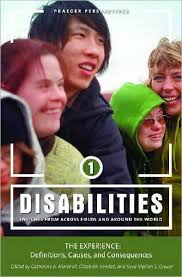
Agorastou, M., Kalyva, E., Kaderoglou, E., & Stefanidis, F. (2009). Attitudes towards inclusion in primary education in Greece. In C. A. Marshall, E. Kendall, M. Banks, and R.M.S. Gover, Disabilities: Insights from across fields and around the world, 3 Volume book set. Westport, CT: Praeger Press.

Kalyva, E., & Agaliotis, I. (2009). Developing the social skills of students with disabilities through peer tutoring: Implications for inclusion.In A.T. Heatherton and V.A. Walcott, Handbook of Social Interactions in the 21st Century (pp. 193-215).New York: Nova Publishers.

Kalyva, E., & Agaliotis, I. (2011). Ways of defining and resolving peer interpersonal conflict: Applications in general and special education settings. In A. M. Columbus (Ed.), Advances in psychology research, Vol. 73. (pp. 1-26). Hauppage, NY: Nova Science Publishers.
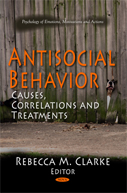
Kalyva, E. (2011). Antisocial behavior in children with ADHD: Causes and treatment. In R. M. Clarke (Ed.), Antisocial behaviors: Causes, correlations, and treatments (pp. 75-92).Hauppage, NY: Nova Science Publishers.
Kalyva, E. (2011). Antisocial behavior in children with ADHD: Causes and treatment. In N. C. Wadorth and A. P. Ferguson (Eds.), Psychology research biographical sketches and research summaries (pp. 279-281).Hauppage, NY: Nova Science Publishers.
Kalyva, E. (2012). Teacher burnout in Greece. In: J. H. Stone and M. Blouin (Eds.), International encyclopedia of rehabilitation. Available online: http://cirrie.buffalo.edu/encyclopedia/article.php?id=124&language=en

Kalyva, E. (2012). Eating disorders in individuals with developmental disabilities. In C. M. Shapiro (Ed.), Eating disorders: Causes, diagnosis and treatments. (pp. 83-104).Hauppage, NY: Nova Science Publishers.

Kalyva, E. (2012). Sexuality for individuals with developmental disabilities. In N. E. Peterson and W. Campbell (Eds.), Handbook on sexuality: Perspectives, issues and role in society (pp. 55-74).Hauppage, NY: Nova Science Publishers.
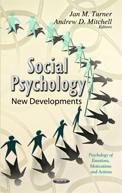
Kalyva, E. (2012). Antisocial behavior in children with ADHD: Causes and treatment. In J. M. Turner and A. D. Mitchell (Eds.), Social psychology: New developments (pp. 113-136).Hauppage, NY: Nova Science Publishers.
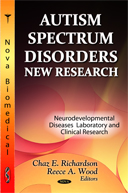
Kalyva, E. (2012). Diagnosing and living with autism spectrum disorders in adulthood. In C. E. Richardson and R. A. Wood (Eds.), Autism Spectrum Disorders: New research (pp. 169-178).Hauppage, NY: Nova Science Publishers.

Κalyva, E. (2013). The importance of choice in educating children with pervasive developmental disorders. In A. M. Columbus (Ed.), Advances in psychology research, Vol. 95. (pp. 155-166). Hauppage, NY: Nova Science Publishers.
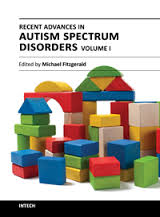
Kalyva, E. (2013). Collaboration between parents of children with autism spectrum disorders and mental health professionals. In M. Fitzerald (Ed.,),Recent advances in autism spectrum disorders - Volume I (pp. 521-562). Prague: Intechopen.
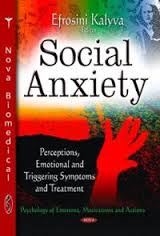
Kalyva, E., & Tsakiris, V. (2013). Social anxiety in the school setting for students with developmental disabilities. In E. Kalyva (Ed.), Social Anxiety: Perceptions, emotional and triggering symptoms and treatment(pp. 127-140). Hauppage, NY: Nova Science Publishers.

Kalyva, E. (2013). Antisocial behavior in children with ADHD: Causes and treatment. In L. T. Cacioppo (Ed.), Mind and body research summaries, Vol. 3 (pp. 213-215).Hauppage, NY: Nova Science Publishers.
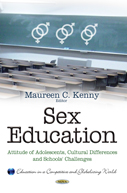
Κalyva, E., & Tsakiris, V. (2014). How do parents view the sexuality of their adolescents with high-functioning autism in Greece? The impact of culture. In M. C. Kenney (Ed.), Sex education: Attitude of adolescents, cultural differences and schools' challenges (pp. 55-74). Hauppage, NY: Nova Science Publishers.
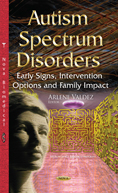
Kalyva, E., & Tsakiris, V. (2015). Social experiences of male adults with autism spectrum disorders. In A. Valdez (Ed.), Autism spectrum disorders: Early signs, interventions options and family impact (pp. 87-102). Hauppage, NY: Nova Science Publishers.

Kalyva, E., Vargiami, E., & Kyriazi, M., & Zafeiriou, D.I.(2015). Autism spectrum disorders in children and adolescents with neurofibromatosis type 1. In A. Costa and E. Villalba(EdS.), Horizons in Neuroscience Research. Vol. 20. Hauppage, NY: Nova Science Publishers.
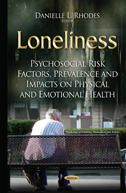
Kalyva, E., & Tsakiris, V. (2015). Loneliness experienced by individuals with autism spectrum disorders In D. L. Rhodes(Ed.), Loneliness: Psychosocial risk factors, prevalence and impacts on physical and emotional health(pp. 73-90).Hauppage, NY: Nova Science Publishers.
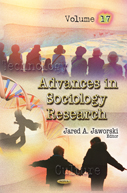
Kalyva, E., & Tsakiris, V. (2015). Empowerment and participation of children and youth with learning disabilities. In J. A. Jaworski(Ed.), Advances in Sociology Research, Vol. 17.Hauppage, NY: Nova Science Publishers.
Kalyva, E. (2015). Eating disorders in individuals with developmental disabilities. In N. C. Wadorth and A. P. Ferguson (Eds.), Psychology research biographical sketches and research summaries (pp. 217-219).Hauppage, NY: Nova Science Publishers.
Kalyva, E. (2015). Peer interpersonal conflict resolution in children with and without disabilities. In N. C. Wadorth and A. P. Ferguson (Eds.), Psychology research biographical sketches and research summaries (pp. 301-303).Hauppage, NY: Nova Science Publishers.
Kalyva, E. (2015). Antisocial behavior in children with ADHD: Cause and treatments . In N. C. Wadorth and A. P. Ferguson (Eds.), Psychology research summaries, Vol. 3 (pp. 171-173).Hauppage, NY: Nova Science Publishers.
Kalyva, E. (2015). The importance of choice in educating children with pervasive developmental disorders. In N. C. Wadorth and A. P. Ferguson (Eds.), Psychology research summaries, Vol. 4 (pp. 17349-351).Hauppage, NY: Nova Science Publishers.
Kalyva, E., & Tsakiris, V. (2015). Social anxiety in the school setting for students with developmental disabilities. In N. C. Wadorth and A. P. Ferguson (Eds.), Psychology research summaries, Vol. 6.Hauppage, NY: Nova Science Publishers.
